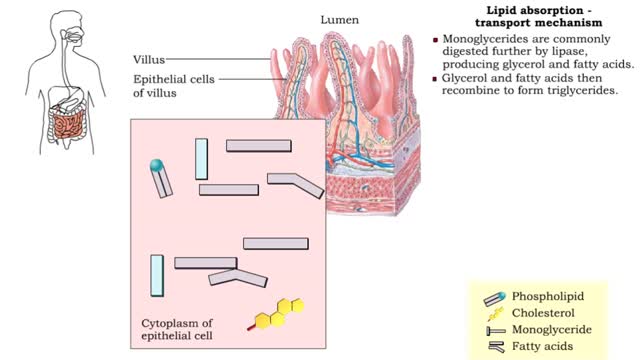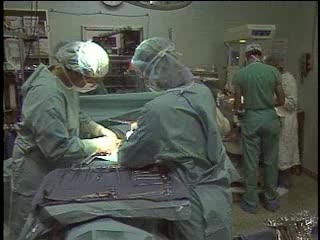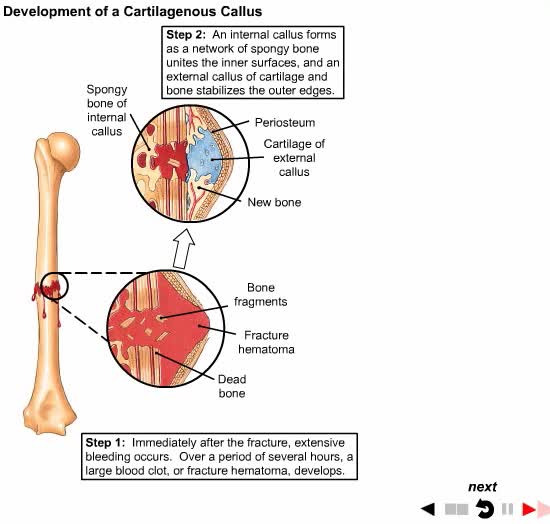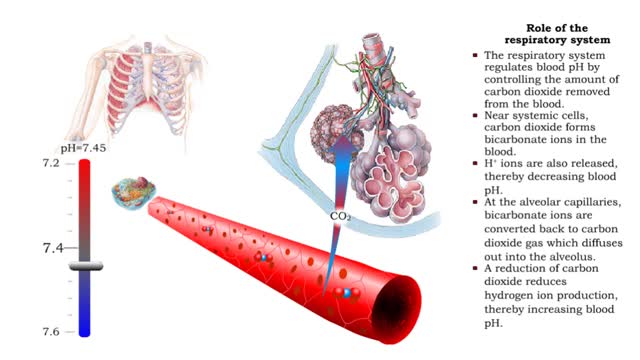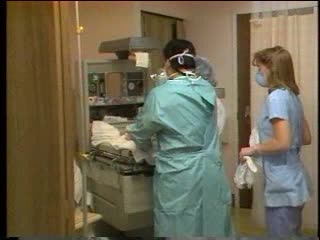Search Results
Results for: 'blood vessels'
Lipid absorption - end products & transport mechanism
By: HWC, Views: 10594
• The end products, fatty acids and monoglycerides, depend on bile salts for absorption. • Bile salts form micelles (tiny spheres), which ferry fatty acids and monoglycerides to epithelial cells. • Free fatty acids, monoglycerides, and some phospholipids and cholesterol molecules, dif...
By: Administrator, Views: 14144
Pre-eclampsia (PE) is a disorder of pregnancy characterized by the onset of high blood pressure and often a significant amount of protein in the urine. When it arises, the condition begins after 20 weeks of pregnancy. In severe disease there may be red blood cell breakdown, a low blood platelet c...
Labor and Delivery - Placenta Cord
By: Administrator, Views: 465
Soon after a baby is conceived, a support system, comprised of the placenta and umbilical cord, begins to develop. These two structures are essential for sustaining a healthy pregnancy, explains Donald Davis, an obstetrician in Medicine Hat, Alta., and past president of the Society of Obstetricia...
How Broken Bones Repair Themselves
By: Administrator, Views: 520
Bone healing, or fracture healing, is a proliferative physiological process in which the body facilitates the repair of a bone fracture. Generally bone fracture treatment consists of a doctor reducing (pushing) displaced bones back into place via relocation with or without anaesthetic, stabili...
By: Administrator, Views: 14046
How nurses check a patient's blood pressure. Blood Pressure The pressure exerted by the blood on the walls of the arteries. Higher (systolic) number: the pressure while the heart contracts. Lower (diastolic) number: the pressure when the heart relaxes between beats. Measured by a sphygmoma...
Role of the respiratory system - effect of altered ventilation rates
By: HWC, Views: 11583
• The respiratory system regulates blood pH by controlling the amount of carbon dioxide removed from the blood. • Near systemic cells, carbon dioxide forms bicarbonate ions in the blood. H+ ions are also released, thereby decreasing blood pH. • At the alveolar capillaries, bicarbonate io...
Labor and Delivery - Infant Cord Apgar
By: Administrator, Views: 459
As soon as your baby is born, a delivery nurse will set one timer for one minute and another for five minutes. When each of these time periods is up, a nurse or physician will give your baby her first "tests," called Apgars. This scoring system (named after its creator, Virginia Apgar) helps t...
By: HWC, Views: 10507
■ Secreted by kidney cells when blood oxygen is low. ■ Targets cells in red bone marrow that will become red blood cells. ■ Promotes increased numbers of mature red blood cells. ■ More mature red blood cells carry more oxygen so blood oxygen level is restored to normal.
By: Administrator, Views: 13869
How blood tests are performed by a professional nurse.
Advertisement



